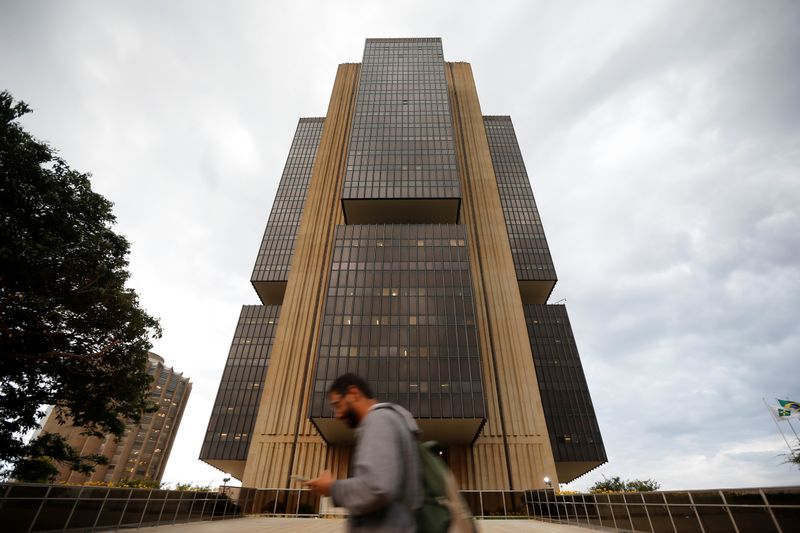BRASILIA (Reuters) - Brazil's government on Monday sent Congress a bill designed by the central bank to regulate financial firms during a banking crisis that mandates the use of public money for bail-outs, but only as a last resort.
If approved, the bill would create two new mechanisms that would dictate how different financial firms would be treated.
The first - the so-called Stabilization Regime - is aimed at larger banks that pose a risk to the country's banking system, but will require specific secondary legislation to dictate how firms are chosen.
The second, known as the Compulsory Settlement Regime, would be aimed at smaller entities and focus on removing the company's senior managers and board. The company and shareholders' money would be prioritized in the case of any losses.
Failing that, losses would aim to be covered by the industry itself, with contributions from other banks to an emergency fund known as the Credit Guarantee Fund.
Only as a last resort would the government step in and provide a publicly funded bail-out, according to the bill.
Brazil's Fiscal Responsibility Law currently bars the government from bailing out banks, although specific laws can be passed during times of financial crisis to circumvent the law and provide public assistance.

The latest bill aims to modernize the Brazilian government's actions during a banking crisis and place greater responsibility on the banks themselves to cover their losses, meaning less of a burden on Brazilian taxpayers, said Climerio Leite Pereira, the head of the central bank's resolution and sanctions department.